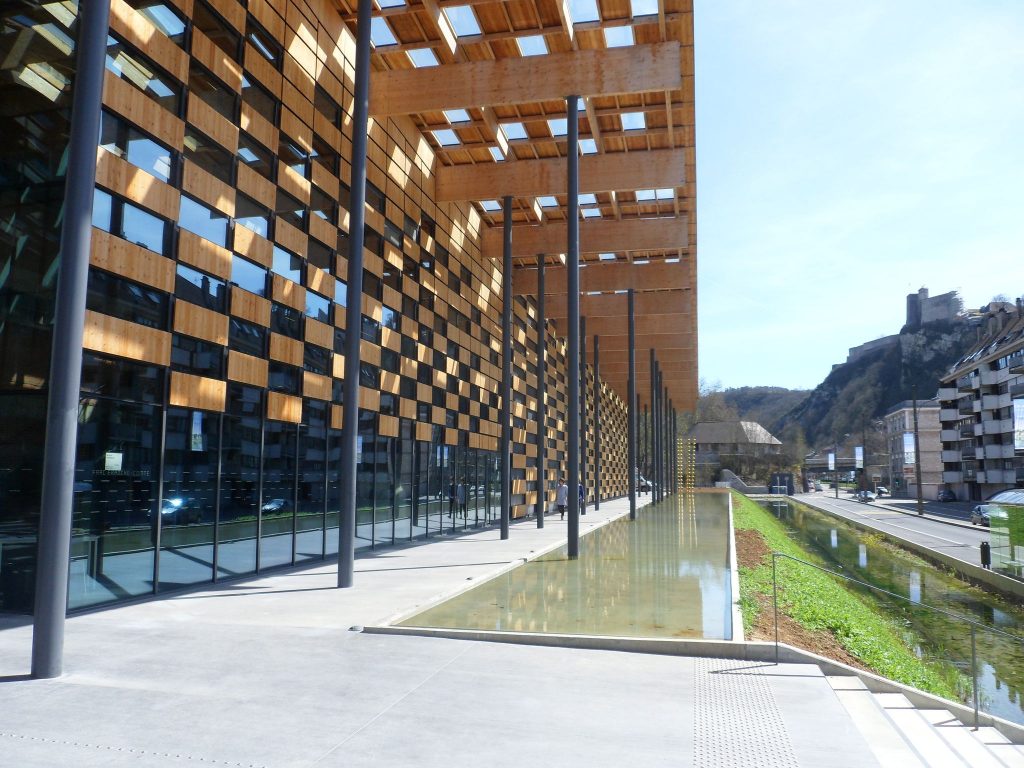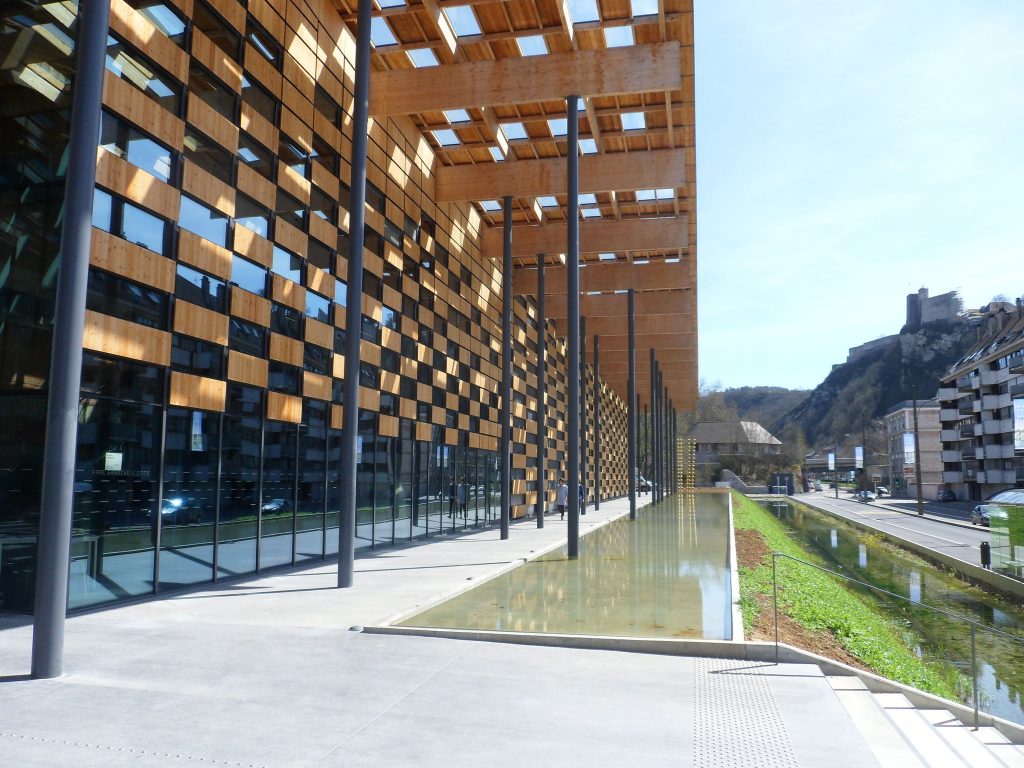Rethinking the criteria for assessing “sound” budgetary management at the local level to initiate the ecological shift

By Anthony Poulin, Deputy Mayor of Besançon in charge of finance, public procurement, sustainable development and coordination of resilience actions
We need to rethink the framework and the rules
Faced with the acceleration of climate change, as confirmed in the latest IPCC reports, it is vital to mobilize all public and private stakeholders. From global to local, it’s only a short step. In fact, the French National Low Carbon Strategy indicates that 75% of the measures for ecological transition are territorial. All the more so as local authorities are the leading public investors, accounting for 70% of civil public investment in France, including more than €27.2 billion for municipalities and inter-municipal groupings alone.
Local authorities, and especially municipalities, are proving to be the linchpins of the ecological transition. To achieve this, municipalities and inter-municipal groupings need to devote significant, targeted budgetary resources in a context of increasing scarcity of public funds.
Based on French Environment and Energy Management Agency (ADEME)’s “Transition(s) 2050” scenarios, the I4CE has estimated the additional climate investments that would have to be made in buildings, transport and energy production in order to move towards carbon neutrality. They range from €14 billion a year for a modest transition, to up to €30 billion a year in a scenario where technical progress continues to maintain lifestyles. The sums needed to meet today’s climate and social challenges mean that all funding mechanisms need to be activated and radically rethought to make them compatible with climate issues.
It will not be enough to earmark funds for the ecological transition. We need to rethink the framework and the rules. The criteria used to assess the sound management of public finances must evolve to adapt to the realities of the climate and social emergency. Managing a local budget “sensibly” in the 21st century (to use the adverb that has replaced the notion of “bonus pater familias” in civil law) means building a modern concept of local public finance based on the notion of “sustainability”.
Strengthening multi-year budget management to transform public policies
For too long, too often, ecological transition policies have been confined to dedicated budget chapters that are disconnected from the rest. This is still the case in many municipalities and inter-municipal groupings. The “siloing” of local public policies remains an obstacle to the expansion and coherence of environmental, energy, mobility, resource management and urban planning policies.
A number of initiatives have been taken by municipalities and inter-municipal groupings to systematically adopt an integrated approach to environmental issues when drafting local budgets. Environmental marking or “green budgeting” brings together a number of more or less operational methodologies, as illustrated in a report produced by Agence France Locale (a public development bank) in collaboration with INET (French public administration school) in April 2022.
For its part, the City of Besançon is currently working on a specific approach in connection with the CEREMA (a French Public agency for ecological transition and regional planning) and the consultancy firm, Auxilia. The aim is to provide a tool for budgetary decision-making that will not be used for assessment purposes, but for the actual construction of projects to be included in the budget. This method could be similar to the ERC approach to biodiversity conservation, which could be translated into an ARA (Avoid, Reduce, Adjust) approach for budget preparation. By making all new projects subject to eco-conditions and by anticipating the impact of its initiatives, Besançon will use additional extra-budgetary criteria to justify its choices and ensure that its projects are ecologically compatible in the short, medium and long term. What all the green budget approaches have in common is that they are part of a multi-year approach to building local budgets. Rolling out these investments over several years appears to be a minimum requirement if we are to succeed in amplifying the ecological transition. If they don’t know where they are heading and why, elected representatives become mere managers, forsaking their primary political function: that of shaping society and living together.

Making local public borrowing an instrument for boosting the ecological transformation of our regions
With ecological sustainability in mind, we need to rethink our attitude to local authority debt. In order to meet today’s challenges, we need to rehabilitate the virtues of debt as a lever for accelerating the ecological transition in the regions. Eric Lombard, CEO of the CDC (French public financial institution), makes the same point when he says that we need to “increase the financial debt to reduce the ecological debt”.
The Pisani-Ferry report by the economist Jean Pisani-Ferry and the General Inspector of Finance, Selma Mahfouz, supports this view. The economist rightly argues: “We’ve had a lot of bad reasons to go into debt, but the climate isn’t one of them.” The need to accelerate green investment must be accompanied by a new approach to local and national public debt. In this respect, it would seem appropriate to exclude from the calculation of public debt the investments that will enable us to achieve the objectives of the Paris Agreement.
This approach is already in practice in many local authorities. Since 2020, a number of local authorities have massively increased their investment capacity, with a view to boosting and accelerating the ecological transition. This is the case for the City of Besançon, which has allocated €10 million of additional investment per year, over the duration of its mandate and on a multi-year basis, i.e. €60 million entirely dedicated to the climate-solidarity plan to renovate schools and nurseries.
To finance these ecological transition projects, local authorities are looking at all sources of funding, and borrowing in particular. Today, 34% of local authority investment projects are financed by traditional bank loans. This is not without consequence from an ecological point of view, as the banking sector has a significant impact on the climate. Several French and European NGO reports have reached some alarming conclusions. Rehabilitating recourse to borrowing involves “eco-conditioning” to ensure that local action takes into consideration the overall impact of the financing requested.
As a result, in June 2021, Besançon became the first French city to make climate and social responsibility a criterion for choosing its banking partners. Going forward, it ensures the source of the bank funds needed to finance the major investment plan for the ecological transformation of our city (renovation of schools, revegetation of the city, etc.).
Some fifteen French local authorities are replicating this initiative. Now, when they borrow, they have decided to put different banks in competition with each other, based on both financial and non-financial criteria. As the mayors of these cities (including Paris, Lyon, Grenoble, Rennes, Bordeaux, Bourg en Bresse) wrote in a joint statement in November 2022: “Now more than ever, it’s time for a real transformation of the economy, towards a fairer and more sustainable model.”

Ensuring sustainable resources for local authorities and rethinking taxation for the 21st century
To be able to plan their climate actions over time, local authorities need trust and visibility in terms of both their financial allocations and their fiscal autonomy.
Financial relations between the State and local authorities seem to be governed by a single rationale: reduce public spending at all costs. This policy unfairly targets operating expenditure, which is the beating heart of local authorities.
They should adopt an alternative approach: increasing public revenue in order to ensure sustainable income for local authorities over the long term. This is the only way to ensure that local authority action is truly sustainable. Reducing taxes for individuals and businesses is problematic. In its latest report[1], the Cour des Comptes (French Court of Auditors) expressed concern about this situation, even prompting the Governor of the Banque de France to abandon his usual reserve and call for “a halt to the race to cut taxes in our country”[2].
Boosting the ecological transition in the regions means strengthening financial autonomy, and therefore fiscal autonomy, for local authorities. The abolition of the housing tax and the CVAE (business contribution on added-value) goes against the grain of France’s history of decentralisation. Given the accelerating pace of climate change, there is an urgent need to provide local authorities with the resources they need to meet their climate and social ambitions. An extensive overhaul of local taxation, with the dual aim of ensuring sustainable resources for local authorities while incorporating the challenges of the 21st century, would appear to be a priority for the legislative agenda.
To go further…
And what if the main issue was ultimately to move away from a managerial vision of budget documents by allowing ourselves to make the budget a political instrument that serves transition? Can we put an end to top-down dialogue between the State and local authorities and instead envisage terms of partnership that are shared, secure and geared to local vulnerabilities?
The challenges are many and time is short. Since 2020, a number of French cities have been adopting an alternative approach to financial management that breaks with traditional budgetary orthodoxy. We urgently need to build on this momentum. Tomorrow it will be too late.
[1] – “Les finances publiques locales 2022 – Fascicule 2” (Local Public Finances 2022 – Section 2), Cour des Comptes, 26 October 2022
[2] – “Arrêtons la course à la baisse d’impôts dans ce pays !” ‘Stop the race to cut taxes in our country!), François Villeroy de Galhau on France 2, Les 4 vérités [TV show], 13 February 2022
The post Rethinking the criteria for assessing “sound” budgetary management at the local level to initiate the ecological shift appeared first on Energy Cities.
Fuente: ENERGY CITIES
Enlace a la noticia: Rethinking the criteria for assessing “sound” budgetary management at the local level to initiate the ecological shift

